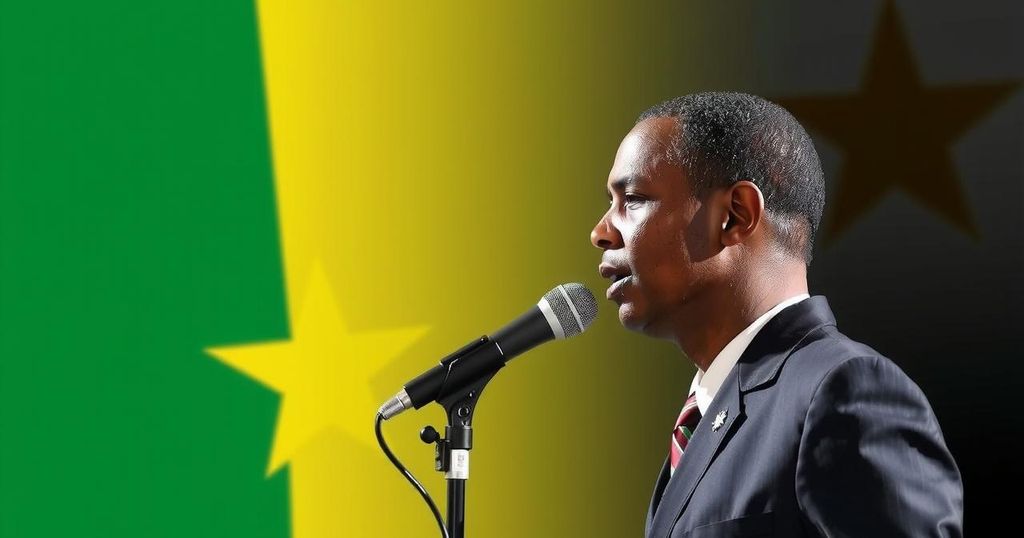Senegal’s Parliamentary Elections: A Crucial Test for President Faye’s Reforms
Senegal held parliamentary elections on Sunday that could determine President Bassirou Diomaye Faye’s ability to carry out his reform agenda. With over 7 million voters choosing 165 lawmakers, Faye’s party seeks a majority to implement changes that include fighting corruption and enhancing resource allocation. The elections were marked by violence and political tension, reflective of the widespread discontent among the youth over economic challenges.
On Sunday, Senegal held parliamentary elections that could significantly impact President Bassirou Diomaye Faye’s ability to implement his promised reforms. Faye, who ascended to the presidency in March, requires a majority in the National Assembly to enact changes aimed at combating corruption and improving resource distribution for the populace. Reports indicate that over 7 million registered citizens voted for 165 lawmakers amidst heightened political tensions following Faye’s dissolution of the opposition-led parliament earlier this year. With the Takku Wallu opposition coalition, led by former President Macky Sall, challenging Faye’s party, PASTEF, analysts predict that PASTEF may secure the necessary 83 seats to gain a legislative majority. Voter demographics appear favorable for Faye, especially considering the strong youth support stemming from widespread discontent regarding economic hardships. Issues such as soaring inflation and limited job security have provoked aspirations for reform among the nation’s youth, who constitute over 60 percent of the population. The electoral process was marred by violence, with reports of clashes between party supporters and incidents of property damage to opposition facilities. During the campaign, Prime Minister Ousmane Sonko vocalized the need for retaliation against attacks on PASTEF supporters, before later urging peaceful conduct among his party’s followers. In the wake of elections characterized by civil unrest, Faye expressed a commitment to uphold democratic principles and preserve Senegal’s reputation as a stable democracy in a region fraught with political turmoil. Shortly after the elections concluded, provisional results are expected but will remain incomplete until later in the week. Overall, this election stands as a pivotal moment for Senegalese politics, fully demonstrating the citizens’ desires for reform and the political parties’ responses to the country’s socio-economic environment.
This article discusses the recent parliamentary elections in Senegal, focusing on their implications for President Bassirou Diomaye Faye’s reform agenda. Faye was elected in March on an anti-establishment platform amidst a series of political upheavals characterized by unrest and a high rate of youth dissatisfaction. The elections were closely aligned with the country’s history of political struggles and the desire for progressive change, particularly among younger voters. Cuba’s political landscape remains tense, with violence reported during the campaign period, underscoring the challenges of governance and stability in Senegal.
In conclusion, the parliamentary elections in Senegal are a critical juncture for President Bassirou Diomaye Faye as he seeks to push through reforms that address pressing socio-economic issues among the populace. The outcome of the elections could empower Faye to actualize his promises, which resonate particularly with the youth. The tensions surrounding the elections highlight the broader struggles within Senegal’s political framework, as the nation navigates its path to democratic stability in the face of significant challenges.
Original Source: www.pbs.org




Post Comment